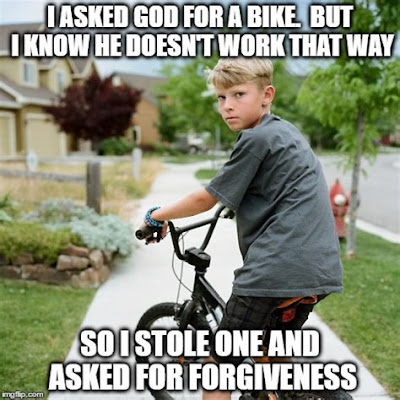You're a law student in your home country. You sign up for a "work and travel" program so you can experience life in another land. In your case, that land is the US.
You find yourself working in a Dunkin' Donuts. Pretty typical American experience, right? (Hey, I did it!) But unlike many other Americans, you don't drive. So you get to work on your bicycle. You also explore the city in which you're spending your American sojourn on two wheels.
That is, until you can't--because you've had an all-too-typical American experience: Your bike was stolen.
What happened next to Nichcha "Ziggy" Tansakul is something she probably could no more have imagined than the theft of her bike when she was studying in her native Thailand.
She and her fellow Dunkin' Donuts workers called the police in Wareham, Massachusetts, the town where she's living and working. Traffic enforcement officer Jamie White took the call. He made a few calls, and soon he was buying her a new bike, and School Resource Officer picked up a locking device that is, hopefully, more secure than whatever she had been using.
Later, other police officers gathered at the Dunkin' Donuts with some of Tansakul's co-workers. Officer White brought her to the shop to present her with the new bike, lock and good wishes.
You find yourself working in a Dunkin' Donuts. Pretty typical American experience, right? (Hey, I did it!) But unlike many other Americans, you don't drive. So you get to work on your bicycle. You also explore the city in which you're spending your American sojourn on two wheels.
That is, until you can't--because you've had an all-too-typical American experience: Your bike was stolen.
What happened next to Nichcha "Ziggy" Tansakul is something she probably could no more have imagined than the theft of her bike when she was studying in her native Thailand.
She and her fellow Dunkin' Donuts workers called the police in Wareham, Massachusetts, the town where she's living and working. Traffic enforcement officer Jamie White took the call. He made a few calls, and soon he was buying her a new bike, and School Resource Officer picked up a locking device that is, hopefully, more secure than whatever she had been using.
| Add caption |
Later, other police officers gathered at the Dunkin' Donuts with some of Tansakul's co-workers. Officer White brought her to the shop to present her with the new bike, lock and good wishes.















